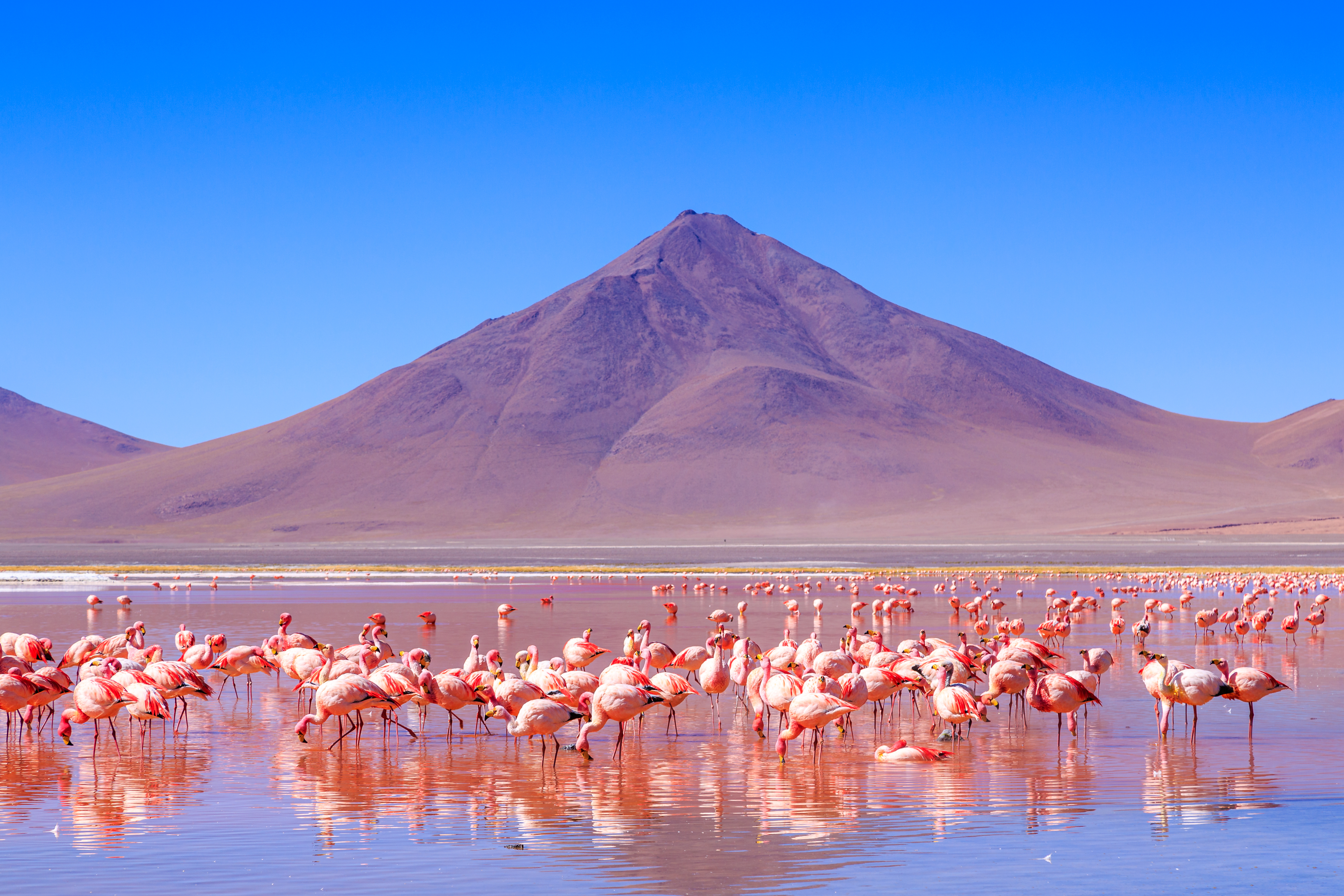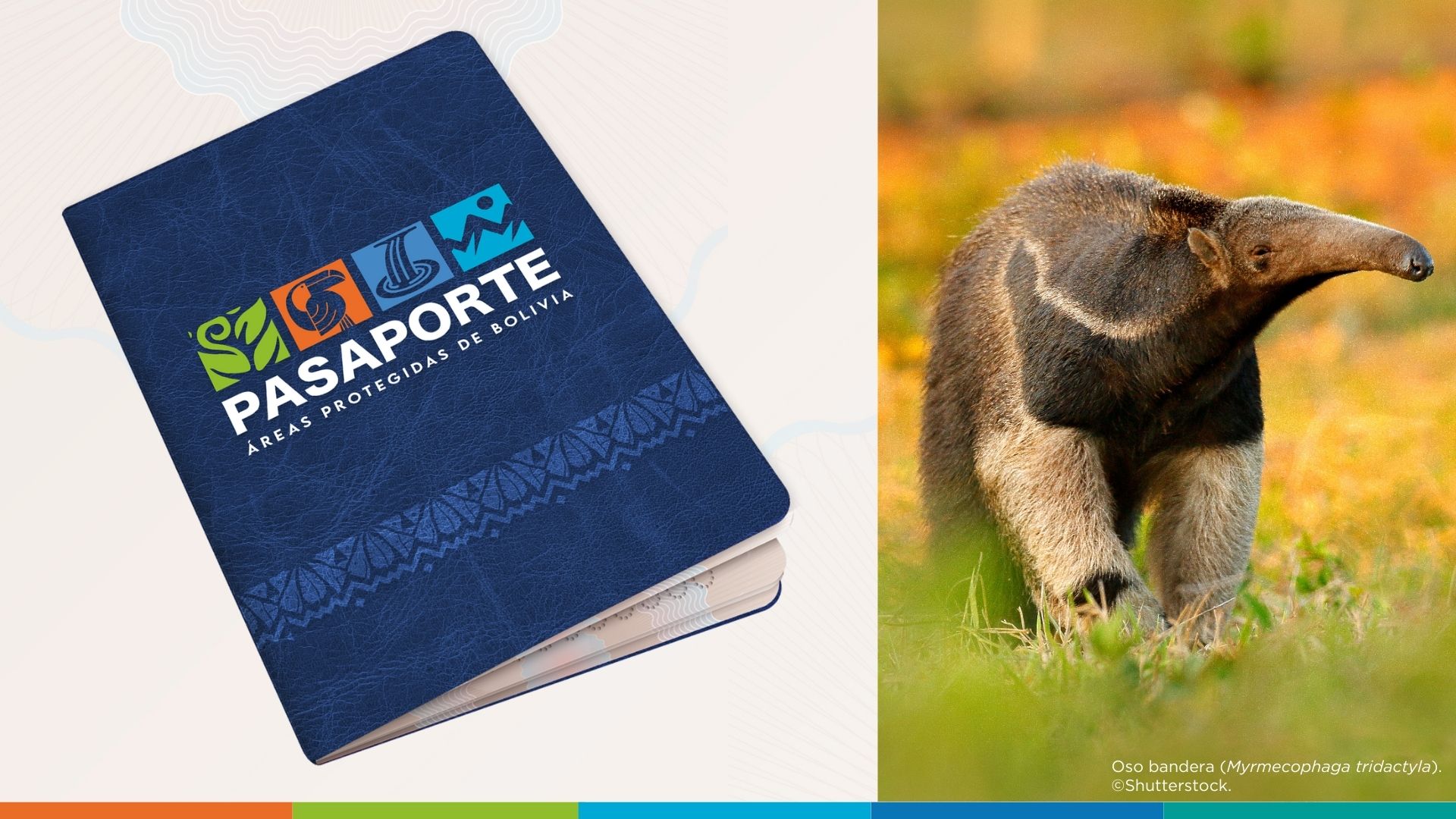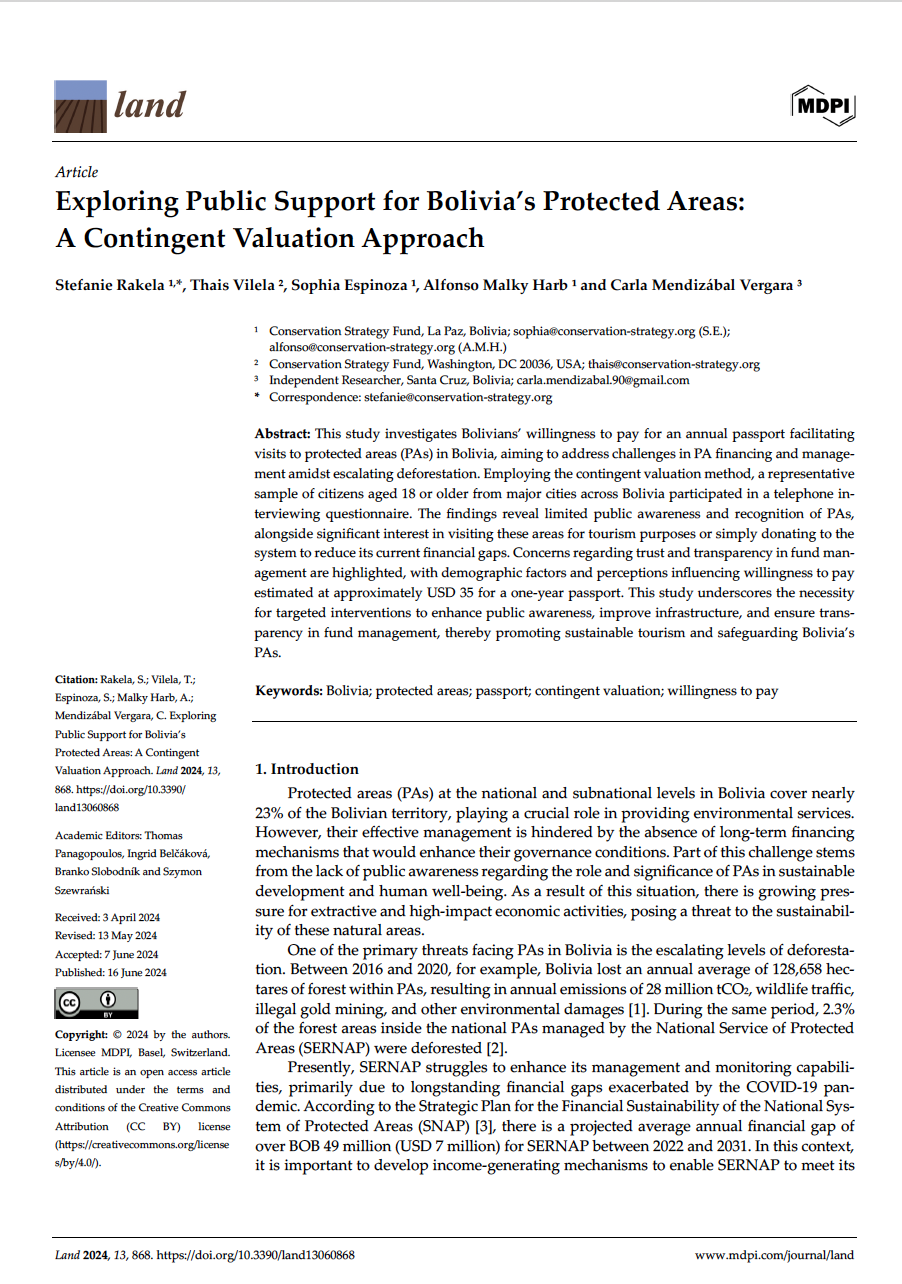Passport to Conservation: Explore and Conserve Bolivia's Protected Areas!
Pasaporte a la conservación: ¡Explore y conserve las áreas protegidas de Bolivia!

El Pasaporte para la Conservación te invita a explorar nuestras Áreas Protegidas Nacionales con acceso ilimitado durante un año. Al adquirirlo, no solo tendrás la oportunidad de descubrir paisajes que te dejarán sin aliento y una biodiversidad invaluable, sino que también estarás contribuyendo directamente a la conservación de estos espacios esenciales. Los fondos recaudados se destinarán a fortalecer la protección de nuestro patrimonio natural, garantizando su preservación para las generaciones futuras.
The Passport to Conservation invites you to explore our National Protected Areas with unlimited access for one year. By purchasing it, you will not only have the opportunity to discover breathtaking landscapes and invaluable biodiversity, but you will also be contributing directly to the conservation of these essential spaces. The funds raised will be used to strengthen the protection of our natural heritage, ensuring its preservation for future generations.
Este innovador instrumento tiene como objetivo fomentar la participación ciudadana en la conservación de las áreas protegidas y asegurar una gestión integral mediante la recaudación de fondos para su monitoreo y protección. El estudio realizado por Conservation Strategy Fund (CSF) reveló que, aunque el conocimiento sobre las Áreas Protegidas Nacionales (APN) en Bolivia es limitado, existe un notable interés en adquirir el Pasaporte. La disposición a pagar promedio se estimó en Bs. 245; sin embargo, se propone una tarifa inicial de Bs. 200, la cual permitirá el acceso ilimitado a las APN habilitadas para el turismo durante un año.
This innovative instrument aims to encourage citizen participation in the conservation of protected areas and ensure integrated management by raising funds for their monitoring and protection. The study conducted by Conservation Strategy Fund (CSF) revealed that, although knowledge about National Protected Areas (NPAs) in Bolivia is limited, there is a notable interest in acquiring the Passport. The average willingness to pay was estimated at Bs. 245; however, an initial fee of Bs. 200 is proposed, which will allow unlimited access to National Protected Areas authorized for tourism for one year.
Los resultados del estudio también sugieren que, al aumentar la visibilidad y conciencia sobre las APN, es posible promover un desarrollo turístico sostenible que beneficie tanto a la conservación de la naturaleza como a las comunidades locales. Conoce todos los detalles del estudio técnico ingresando aquí.
The results of the study also suggest that by increasing the visibility and awareness of National Parks, it is possible to promote sustainable tourism development that benefits both nature conservation and the economies of local communities. For full details of the technical study click here.
El Pasaporte para la Conservación fue presentado el 4 de septiembre, Día Nacional de las Áreas Protegidas, por Moises Yonyun Hur Torrez, Director de Planificación del Servicio Nacional de Áreas Protegidas (SERNAP), en instalaciones del Hotel Europa de la Ciudad de La Paz. El evento tuvo la presencia de Alan Lisperguer Rosales, Ministro de Medio Ambiente y Agua (MMAyA), Johnson Jiménez Cobo, Director Ejecutivo del SERNAP, Eleuterio Maraza, Jefe de Unidad de la Dirección de Biodiversidad y Áreas Protegidas, Cnl. DAEN. Johony Yucra, Comandante del Instituto Geográfico Militar, representantes de la Unión Europea, la Embajadad de Suecia y Directores de organizaciones no gubernamentales que trabajan en el área ambiental.
The Passport for Conservation was presented on September 4, National Protected Areas Day, by Moises Yonyun Hur Torrez, Director of Planning of the National Protected Areas Service (SERNAP), at the Hotel Europa in the city of La Paz. The event was attended by Alan Lisperguer Rosales, Minister of Environment and Water (MMAyA), Johnson Jimenez Cobo, Executive Director of SERNAP, Eleuterio Maraza, Head of Unit of the Directorate of Biodiversity and Protected Areas, Col. DAEN. Johony Yucra, Commander of the Military Geographic Institute, representatives of the European Union, the Swedish Embassy and Directors of non-governmental organizations working in the environmental area.
"El Pasaporte, que cuenta con una línea gráfica de muy alta calidad, permitirá captar fondos para todas las áreas protegidas nacionales. El fuerte de este instrumento es la transparencia, tendremos una plataforma virtual que mostrará a los usuarios el destino de los fondos, dónde se está invirtiendo y cuánto se está recaudando", enfatizó Moises Yonyun Torrez.
“The Passport, which has a very high quality graphic line, will make it possible to raise funds for all national protected areas. The strength of this instrument is transparency; we will have a virtual platform that will show users the destination of the funds, where they are being invested and how much is being raised,” emphasized Moises Yonyun Torrez.
Todos los Bolivianos pueden ser parte de la conservación de las áreas protegidas, reserva tu Pasaporte y recibe un regalo exclusivo visitando: https://pasaporteareasprotegidas.gob.bo/home
All Bolivians can be part of the conservation of Protected Areas. Reserve your Passport and receive an exclusive gift by visiting: https://pasaporteareasprotegidas.gob.bo/home
Este proyecto ha sido desarrollado por Conservación Estratégica (CSF) para el Servicio Nacional de Áreas Protegidas (SERNAP) con el apoyo de la Embajada de Suecia y la Unión Europea.
This project has been developed by CSF for the National Protected Areas Service (SERNAP) with the support of the Swedish Embassy and the European Union.

- Log in to post comments







